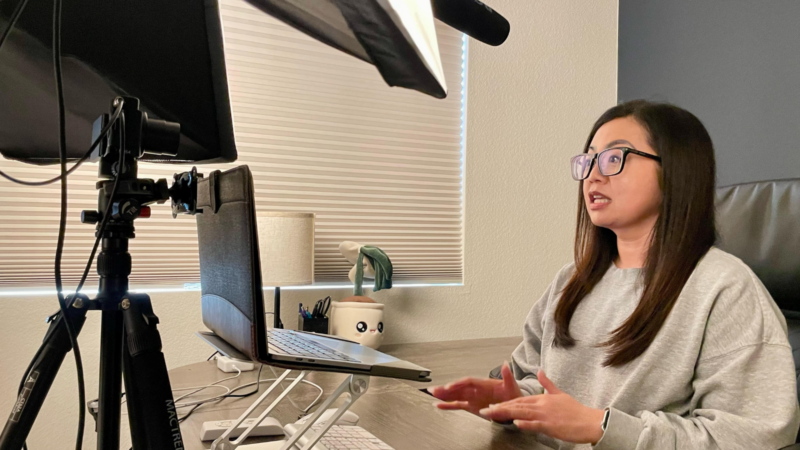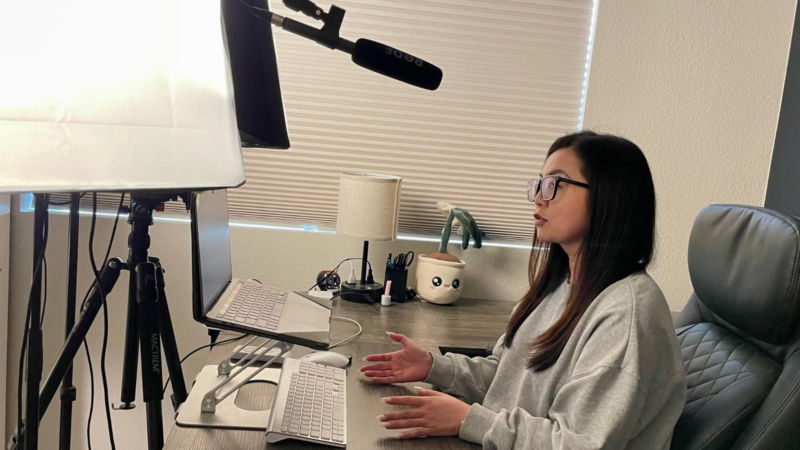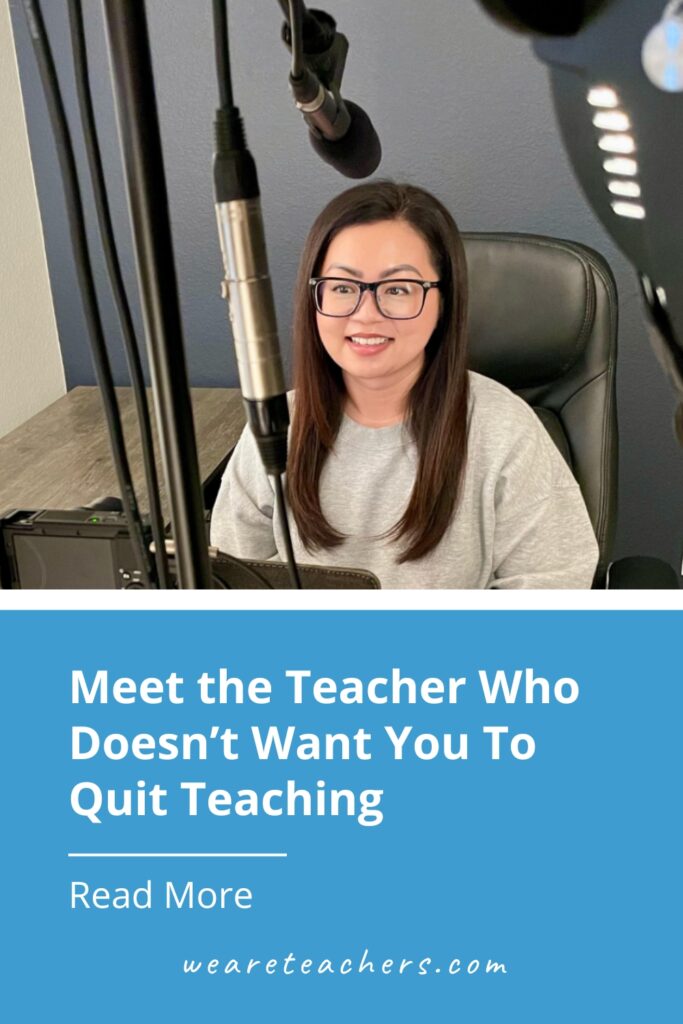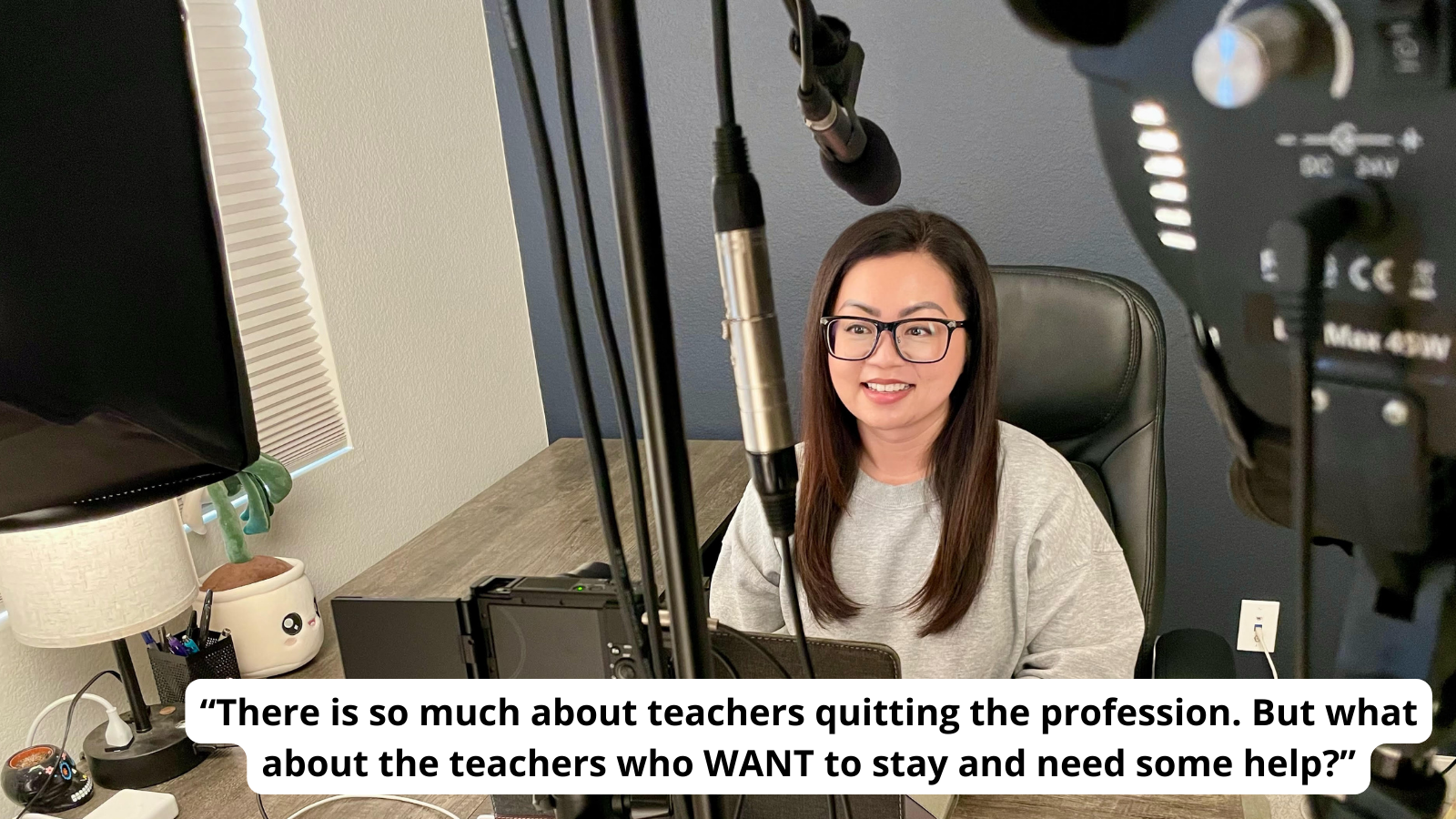When middle school English teacher Kim Lepre set out to start her own podcast, she had one main goal: to keep teachers teaching. While Kim knows there are many valid reasons for educators to quit teaching, she wanted to find a way to support those who want to stay.
Her podcast, Teachers Need Teachers, has such a beautiful approach. It’s not filled with empty advice or negative rants. Instead, it offers support and guidance for the real day-to-day challenges of being a teacher.
We loved discovering Kim’s podcast, so we caught up with her to learn more about it. Check out our Q&A with Kim, and then be sure to give Teachers Need Teachers a listen!
What’s your background in teaching?
Even though I admired most of my teachers, I never wanted to be one. I went to college as a piano performance major and realized that I would have much more fun teaching. So I majored in music education. I started out teaching band for 10 years and then switched to English when I got burned-out. I’ve now been teaching for 22 years, most of which has been in San Diego.
When did you start your podcast and why?
I started my podcast in the summer of 2018. At that time, I was a teacher mentor in my district for multiple beginning teachers, and I realized that a lot of them were having the same struggles and asking the same questions. I also saw these same struggles in different teacher Facebook groups, but in that space, there were a lot of beginning teachers complaining that they weren’t adequately prepared in their teaching practicum programs. Since I’ve always had a passion for helping teachers stay in the profession for as long as possible, I decided to dip my toes into podcasting as a way of spreading the message.

Where did you come up with the name for your podcast, Teachers Need Teachers?
This was really difficult for me since there were already other educational podcasts with great names, and I’m not necessarily the most creative person. I had a few other iterations of the name but settled on Teachers Need Teachers since I could abbreviate it as TNT, which I thought was catchy.
What are a couple of your most popular episodes?
Episode 92, Common First Year Struggles We All Have, and Episode 98, Actionable Strategies for New SPED Teachers. I think that new teachers liked the relatability of Episode 92. When we’re brand-new teachers, we often feel like failures in so many ways, and it’s very overwhelming, especially post-pandemic. And with Episode 98, there often isn’t a lot of practical tips for teachers going into Special Education or for general-ed teachers with SPED students, so I imagine that listeners found that helpful.
Why is it important to you to give teachers support to stay in the classroom?
There is so much in the media about teachers quitting the profession. (Or why educators quit teaching, like this We Are Teachers article.) Many, many social media posts with teachers packing up their classrooms, crying in their cars, revealing the horrendous conditions in which they work … it’s everywhere. And even in Facebook groups, there’s a loud chorus of teachers telling others who just want to vent that they should just quit, which is enough to scare anyone away who might’ve wanted to be a teacher.
But what about the teachers who WANT to stay and just need some help and encouragement? Who maybe weren’t prepared or didn’t know what they were getting themselves into but still want to give it a go? I feel like with the right mindset and tactics, many can make it through different obstacles. I’m not saying that all teachers should stay or that there aren’t teachers with toxic work environments, but there are still enough of us that just need some support without being prompted and pressured to quit.

You talk a lot about giving teachers alternatives before they quit teaching. Any ideas here?
If you like your school but don’t like the grade you teach, then switching grade levels would be a good first start. If you like what you teach but hate your administration or coworkers, then switching schools would definitely help (I did that and am so much happier!). You could also try switching subjects if you feel like you’re in a rut. I only had to take a test to switch from being a band teacher to an English teacher, so that could be an option depending on your area. You can also look at becoming a counselor, administrator, a specialist, or coach. There are a lot of ways to still have that impact on students, if that’s your calling, without having to be in the classroom.
When teachers feel like they’ve hit a wall, what advice do you have for them?
Set firm work boundaries. A lot of times, we have the intention of doing that, but then we let things slide. We grade a few assignments at home. Answer some emails. Stay late a couple of times a week. But it all adds up.
What do you think we need to be talking about to keep teachers in classrooms?
Teachers need better practical preparation, which means ensuring that the people at the university level have had solid classroom experience and can prepare future teachers for the reality of what’s happening in classrooms. Less educational theory and more solid tips on things like classroom management and how to diplomatically deal with other adults (i.e., parents, admin, coworkers). I know that several states are trying to fast-track people into teaching credentials to fill the gaps, but that’s doing a disservice to those teachers and the students because beginning teachers need both time in front of students AND a mentor to talk them through the mistakes they’re making.
We also need better training and vetting of administrators. So many are ineffective, don’t know how to support teachers, and are leading with ego. They need to see that if a teacher is not successful in their classroom, it’s often a direct result of ineffective leadership. If there’s a lot of attrition at their school, then the administrators need to take a long, hard look at how they’re managing the school and make changes rather than gaslighting the staff.
What about teachers out there who haven’t yet found their support system?
It can feel really lonely if you don’t have any support or a mentor to turn to at your school. Luckily, there are some good Facebook groups like the We Are Teachers Helpline where teachers can get a lot of support. The teachers there are so supportive. You can also reach out to your district to see if there are any coaches or if they can connect you with other teachers in your grade or subject area.
Where can we find out more about you?
I have a YouTube channel and podcast with the same name, Teachers Need Teachers. I’m also on Instagram. I always respond to messages and emails, so if teachers have specific questions, they shouldn’t hesitate to reach out.
Looking for more articles like this? Be sure to subscribe to our newsletters!


